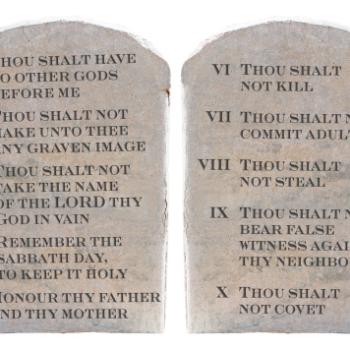This post is another account of one of the presentations I watched two weeks ago as I attended the virtual New Insights into the New Testament. Hosted by Dr. Bart Ehrman, we were told it was attended by about 3,000. He gave a presentation.
Bart D. Ehrman is professor of Christian Origins at the University of North Carolina at Chapel Hill. He is an authority on textual criticism of the New Testament and on the study of the historical Jesus. He is also a bestselling author of six books. He has written or edited thirty-three books.
Dr. Ehrman entitled his presentation “When God Reviled (or Mocked?) Jesus: The Textual Problem of Mark 15:34.” This text is about Jesus hanging on the cross and uttering one of his seven sayings on the cross recorded in the New Testament gospels. Mark 15.34 relates, “At three o’clock Jesus cried out with a loud voice, ‘Eloi, Eloi, lema sabachthani?’ which means, ‘My God, my God, why have you forsaken me?”” The same is recorded in Matthew 27.46.
Ehrman began his presentation by relating that there are about 5,700, ancient, Greek manuscripts of the New Testament or portions thereof from which textual critics compile a Greek New Testament. Translators of other languages then use this to make a translation of the New Testament in another language, such as English. Thus, when people talk about what the Bible means in some particular text, the answer should take into account what the Hebrew text for the Old Testament or the Greek text for the New Testament says in that particular text.
Ehrman then said there are way more ancient manuscripts of the New Testament than for any other document ever produced. He also related that these 5,700 manuscripts contain about 500,000 variants, which are differences in wording. He explained that most of them are merely misspellings, since documents back then were hand copied, which are unimportant. The printing press was invented in 1440.
When variants occur that are not misspellings, textual critics try to understand why these occurred. Oftentimes, it is merely some type of mistake in copying. Very occasionally it is an interpolation, meaning a scribe purposely changed the text because he thought the copy he was working with had been miscopied.
Ehrman explained that concerning Jesus’s so-called “cry of dereliction” on the cross, it is recorded as above in all of the earliest manuscripts in Mark 15.34 and Matthew 27.46. Early is considered better regarding ancient manuscripts of a document since the time that copy was made was closer to the time of its original. Thus, there was less chance for error to be made in this transmission process. The two earliest and complete manuscripts of the entire Bible–thus both the Old Testament and the New Testament–are Codex Vaticanus and Codex Sinaiticus. They were produced in the fourth century AD, and both of them have Jesus’s dereliction cry as stated above.
Ehrman then related that a fifth century copy of the New Testament, Codex Bezae, has a different dereliction cry. It is in English, “My, my God, when have you reviled me?” Ehrman said the Greek word translated “reviled” can be rendered “mocked.”
Ehrman then gave us a lesson on how textual critics make decisions regarding such variants in copies of the Greek New Testament writings. He said there are two types of manuscript evidence: (1) external evidence, which is Bible translations (versions), which consists mostly of patristic writings that contain quotations from the Bible, and (2) internal evidence, which is the Greek manuscripts themselves. Concerning the latter, there is intrinsic evidence and transcriptural evidence. I won’t even get into that. As you can see, this subject can get very complex. Ehrman then said the vast majority of variants in the ancient Greek manuscripts of New Testament writings are unimportant.
Back to Jesus’s dereliction cry recorded in Mark 15.34, Dr. Ehrman said besides the Codex Bezae manuscript that has “reviled,” some later Latin translations have the equivalent of “reviled” as well. But it’s only three out of hundreds of Latin manuscripts. He said numbers are not so important in deciding variants, but “tracing back is what matters.” He means the age of the manuscripts. The older the better.
Ehrman then related that Mark’s gospel portrays Jesus’s crucifixion somewhat differently than all three other New Testament gospels. He says it has more mocking of the crucified Jesus by onlookers. Ehrman thinks that because of this, it is more possible that Codex Bezae is right in recording that Jesus’s dereliction cry was, “Why have you reviled (or mocked) me?” The two Greek words are: kataleipo means “forsakened” or “abandoned,” and aneidizo means “reviled” or “mocked.” Ehrman entertained various motives for why a scribe might change aneidizo to kataleipo. That’s getting even more complicated.
Ehrman then revealed that the most important sect that opposed what we might call “conservative” or “orthodox Christianity” were the Gnostics. They believed Jesus was not an actual human being but that he was a “phantom” who did not suffer on the cross and die. But all Gnostics did not believe alike. Many of them believed “the Christ” as a divine being came upon Jesus at his baptism and departed at his crucifixion so that his divinity would not suffer. Gnostics believed suffering was itself evil. Bart said Gnostics had more interest in preserving the concept that God reviled or mocked the phantom Jesus on the cross.
After all this learning, Ehrman surprised me by saying he believed Mark wrote kataleipo, meaning “forsaken,” as nearly all ancient Greek manuscripts have it. Frankly, I was relieved to think that all those manuscripts might have gotten it right!
Dr. Ehrman then subjected himself to a Q&A by attendees. By this time I was not following the presentation as closely, so I didn’t hear all of the questions. One was, why has the New Testament come down to us in the Greek language since the native tongue of Jesus and his apostles who went about proclaiming the gospel was Aramaic, a sister language of Hebrew? Bart answered that it was because the Christian message soon was being proclaimed beyond the land of Israel into Gentile lands in the Roman Empire, and the somewhat universal language at least in the eastern branch of the Roman Empire, where Israel was located, was Greek. He compared it to English today. Another question was about Codex Bezae, pronounced “beezae.” Ehrman said textual critics regard it as the most controversial manuscript among the complete Greek manuscripts of the New Testament. Ehrman then ended his presentation and Q&A.
BTW, I’d like to add something to this since Jesus’s dereliction cry is important to many Christians, and some of them have questions about it. The traditional, Christian interpretation of Jesus’s dereliction cry on the cross is that God abandoned Jesus at that moment because he was bearing our sins, and God the Father could not associate with sin and therefore had to abandon him. I disagree with that strongly, though I was taught it and believed it for decades.
The interpretation of Jesus’s dereliction cry that I advocate is that God did not abandon Jesus, but that was the way he felt at that time of unfathomable physical suffering. This interpretation lends further credence to Jesus being human like the rest of us, except without sin.
Nearly all Bible scholars believe that what Jesus uttered was a purposeful quotation from Psalm 22.1, which reads, “My God, my God, why have you forsaken me?” This psalm was written by King David, who wrote half of the 150 psalms in the biblical psalter. This psalm relates the most predicted suffering of the crucified Jesus in the Old Testament. The text relates how David himself felt, but it applies as well to Jesus who is “the son of David.”
But interpreters often overlook other verses in this psalm, which is a prayer, that indicate God did not depart from either David or Jesus in their suffering. For instance, we read further that David asks God, “Do not be far from me, for trouble is near and there is no one to help” (v. 11). Moreover, David says later in this psalm concerning God, “he did not hide his face from me, but heard when I cried to him” (v. 24). David further relates in his famous next psalm, in Psalm 23, “The LORD is my shepherd, I shall not want…. Even though I walk through the darkest valley, I fear no evil; for you are with me” (vv. 1, 4). Surely the darkest valley that Jesus ever went through was when he hung that old rugged cross with spikes through his body.
Finally, the Johannine Jesus said, “the one who sent me is with me; he has not left me alone; for I always do what is pleasing to him” (Jn 8.29). And he later said to his apostles, “The hour is coming, indeed it has come, when you will be scattered, each one to his home, and you will leave me alone. Yet I am not alone because the Father is with me” (Jn 16.32).
How comforting it is for those of us who know our Lord Jesus Christ by faith that his God and ours does not forsake us when we are faithful to him and enduring physical or emotional or mental pain.














